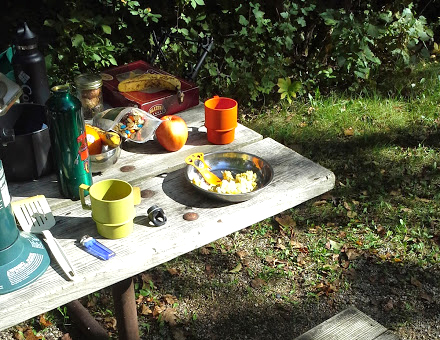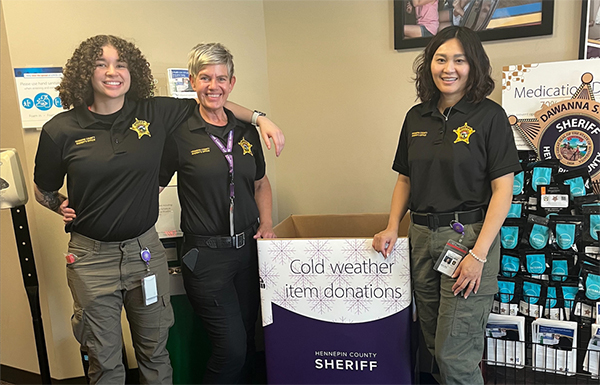When people go camping, focusing on relaxation and quality time with others can unintentionally lead to more waste. With a bit of preparation, you can practice the 3 Rs while still having fun--whether you’re car camping for a night or headed on a cross-country cycling tour.
Reduce packaging
Remember to use your low-waste shopping skills when preparing for vacation. Shop for staples like oatmeal, coffee and snacks in bulk, and avoid buying individually packaged foods for their convenience. You can also dry or preserve your own fruits and vegetables or freeze meals to take with you. Since most camping situations involve a vehicle, it is easy enough to pack a few reusable containers and bring them back home. For hiking or biking trips, reuse lightweight containers or plastic bags rather than buying the disposable options of pre-packaged food.
Reduce wasted food
A change-up in meals and reliable refrigeration can lead to extra waste if you’re not careful. Pre-plan your meals for the duration of your stay and pack perishable food wisely; bring only enough to last a few days. To keep your food from spoiling without refrigeration, bring a reusable cooler with ice packs, or for longer stays, refresh your ice regularly (don’t forget to recycle the dried plastic bag!). Don’t open the cooler more than necessary, and make sure to store all of your food in watertight containers to prevent soggy foods and cross-contamination. If possible, keep separate, smaller coolers for both meat and for beverages, and keep your coolers in the shade and not inside a hot car. Although cooking over an open fire can be part of the adventure, hot flames can often result in burnt foods. Use a camp stove for more reliable meal results, especially with main courses.
Reuse camping equipment
Opt for durable equipment and reusable options wherever possible. If you’re just starting out or concerned about making an investment, borrow from friends, buy used gear or consider renting some of the basics from outfitters Hoigaard’s, REI, or the UMN Center for Outdoor Adventure. Choose long-lasting options when buying new tents, coolers, folding chairs, camp stoves, air mattresses, and items like flashlights or rain jackets. Repair your items when they need it.
Replace common disposables with reusables
- Bottled water: Bring a large water cooler and/or personal water bottles. Make the campground potable water source a first destination!
- Paper, Styrofoam and plastic dishware: Pack a set of reusable plates or bowls, cups, and utensils. If you plan meals for hiking or plan to eat out, bring reusable containers for leftovers.
- Paper towels, napkins or towelettes: Bring a set of old towels in different sizes—you can hang them on a line to dry them in between uses.
- Aluminum foil: Opt for cooking irons, a cast iron pan or regular kitchen pots and pans that can handle rough use.
For dishwashing, bring reusable tubs, scrub brushes and dishtowels. Make sure to dispose of your greywater (from dish tub and handwashing) according to the campground or natural area’s policies.
Recycle and compost
Some campgrounds, like Three Rivers Park District's Baker Park Reserve, Cleary Lake Regional Park and Carver Park Reserve, have both recycling and organics collection. Many others still do not. Think about this early; prep some meals at home to allow you to recycle and compost so you don’t have to think about it during your trip. Then, pack a bag or bin to separate your recyclables and a reusable container with a lid for compostables. If you can’t find the right disposal options, bring your waste home or to a drop-off location. Pack it in, pack it out!

